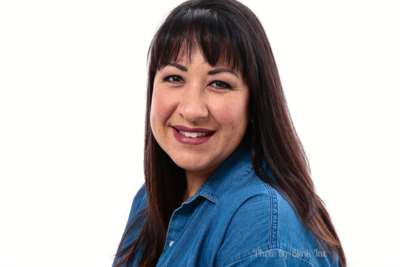 Now that I’m in my 40’s, I have noticed so many changes with my body. Hair loss, weight gain, adult acne, dry skin in some areas and oily skin in others along with so much more. I have been wondering if these symptoms have been attributable to a woman’s change of life. I had the opportunity to talk with Dr. Mary Bull, an OBGYN at Kaiser Permanente Orange County who shared a little insight to what ladies entering perimenopause and menopause stages should expect.
Now that I’m in my 40’s, I have noticed so many changes with my body. Hair loss, weight gain, adult acne, dry skin in some areas and oily skin in others along with so much more. I have been wondering if these symptoms have been attributable to a woman’s change of life. I had the opportunity to talk with Dr. Mary Bull, an OBGYN at Kaiser Permanente Orange County who shared a little insight to what ladies entering perimenopause and menopause stages should expect.

I was very excited to speak with Dr. Bull because after a year and a half of noticing so many changes in my body, I wanted to compare what I have been experiencing to true perimenopause or menopausal symptoms.
Difference Between Perimenopause and Menopause:
- Perimenopause is when a woman’s ovaries produce less estrogen and eventually stop the production all together.
- Menopause is when a woman stops having her menstrual cycle for 12 months.
Age range?
- The typical age range for women to enter the perimenopause stage is 45-47. You generally enter the perimenopause stage of life approximately 5 years before menopause.
- The average age for women entering menopause is 51.
My symptoms started when I was 43. Based on the average, I am not quite in the age range to be experiencing a woman’s change of life, however Dr. Mary Bull confirmed that even thought rare, it can happen as early as 36 years old.
Perimenopause Symptoms:
- Changes in skin texture
- Hot Flashes
- Irregular menstrual cycle – typically lighter or more days between cycles.
- Difficulty sleeping or feeling tired
- Anxiety or feeling like you’re in a mental fog
- Weight gain
- Urine leakage when coughing or sneezing
 Based on the symptoms Dr. Bull shared, it appears I have been experiencing a number of them. First things I noticed was the loss of hair. During showers, I had noticed a minimum of 10 strands that would just drop out onto the floor of the shower. Once dry, I’d use a comb to get rid of the tangles and another few strands would slip away.
Based on the symptoms Dr. Bull shared, it appears I have been experiencing a number of them. First things I noticed was the loss of hair. During showers, I had noticed a minimum of 10 strands that would just drop out onto the floor of the shower. Once dry, I’d use a comb to get rid of the tangles and another few strands would slip away.
My irregular menstrual cycles began when I turned 44. My OBGYN and I attributed the disruption in my cycles to stress. At one point, I had a break in cycles for 6 months, but that was after a 15 day heavy flow. Now looking back, I think it was a combination of entering the perimenopause stage AND stress. And, now that I am approaching 45, I have noticed additional symptoms including weight gain, difficulty sleeping and fatigue.
Recommendations – Coping with Perimenopause and Menopause Symptoms: (prescribed by physicians)
- Estrogen – If you are experiencing perimenopause symptoms and are under the age of 60, some doctors recommend estrogen. With your body slowing down and producing less estrogen, taking hormones like estrogen will help you feel more “normal”. However, by taking hormones, you will have an increased risk of uterine cancer.
- If the symptoms occur prior to age 40 they are usually attributed to premature ovarian failure, not menopause
- Progesterone – If you have a uterus and take estrogen without progesterone you increase your risk of uterine cancer. This goes away if you take progesterone with the estrogen.
- Anti-depressants – I was quite surprised that Dr. Bull said some physicians would prescribe an anti-depressant, but she shared that this type of medication may help relieve some of the symptom experienced because of this transition to menopause.
I asked Dr. Bull about herbal supplements for the change of life, but she stated that many are not regulated by the FDA so she didn’t feel comfortable recommending them.
When starting on a medication plan with estrogen and progesterone, Dr. Bull recommended starting within a year of the menstrual cycle stopping. After approximately 5 years of being on these medications, the patient should be weaned off or they face a higher risk of cardiovascular issues.
Like with all medications, it is best to consult your physician for the best treatment plan, and to find out all risks associated.

Open enrollment is coming soon! In choosing Kaiser Permanente Orange County, you’ll have the ability to select from many services such as: primary and urgent care, emergency facilities, labor and delivery, pharmacy, and lab all housed under one roof. The ability to choose your own doctor based on their specialty is an added bonus. Find out more today at: kp.org/orangecounty.
Connect with Kaiser Permanente via social media, visit Facebook or Twitter.




